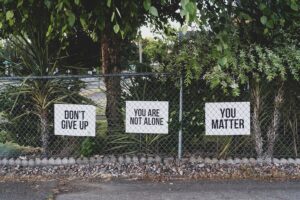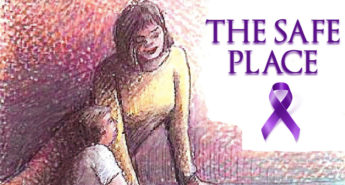
Mental Health Month raises awareness of trauma and its impact on the physical, emotional, and mental well-being of children, families, and communities. According to NAMI, millions face the reality of living with a mental illness each year. In May, NAMI ( National Alliance of Mental Illness) joins the public movement to raise awareness. (www.nami.org) May is Mental Health Awareness Month, so we want to make sure we acknowledge a burdensome truth “Nearly one in five Americans lives with a mental health condition,” according to the National Institute of Mental Health. This includes any mental, behavioral, or emotional complaint such as:
- Depression
- Mood diseases, including bipolar disorder
- Personality diseases
- Personality diseases
- Psychotic diseases, including schizophrenia
- Trauma
- Anxiety
- Eating diseases
- Substance- use disorders
Isolation, sickness, grief, and job loss are some contributing factors, as well as a lack of access to mental health services during delicate times. Everybody needs to understand, that mental illness isn’t something we can overcome with restraint, this doesn’t mean we’re failures. “Biological factors similar as genes or brain chemistry, trauma, abuse, and family history of mental illness can beget mental illness,” said Paul Simeone, Ph.D. One of the best things we can do is to exercise self-compassion.
Ideas for this include:
- Remain hopeful. Find things to be thankful about. You could start a gratefulness journal, or keep notes in a gratefulness jar.
- Use your phone or computer to stay connected with a balance on when to disconnect.
- Limit the time you spend watching the news.
- Eat healthy and exercise, it doesn’t have to be a strict diet or exercise routine, find a way to make small changes similar to eating less of the “bad food” or by going on walks.
- Focus on what you can do to stay prepared.
- Be delightful and creative while at home (e.g., dance, listen to music, small projects around the house).
- Setting a routine/ structure to the day can combat tedium.
Don’t smoke, drink alcohol or use drugs to deal with your passions.(www.leahealth.org)
We all need to fight the prejudice and negative attitudes that discourage those in need of seeking mental health support.
Help support by gaining knowledge of mental health.
If you or someone you know is in need of immediate assistance call the National Suicide Prevention Lifeline @ 1-800-273-TALK (1-800-273-8255)— which is being transitioned to a simple three-digit number, 988.




Leave a Reply